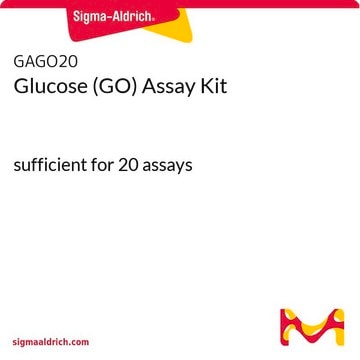MAK064
Lactate Assay Kit
sufficient for 100 colorimetric or fluorometric tests
Synonym(s):
Lactic Acid Assay Kit
About This Item
Recommended Products
usage
sufficient for 100 colorimetric or fluorometric tests
application(s)
cosmetics
food and beverages
detection method
colorimetric
fluorometric
relevant disease(s)
endocrinological disorders, diabetes; cancer
storage temp.
−20°C
General description
Application
Suitability
Principle
replaced by
Signal Word
Danger
Hazard Statements
Precautionary Statements
Hazard Classifications
Resp. Sens. 1 - Skin Sens. 1
Storage Class Code
10 - Combustible liquids
Flash Point(F)
188.6 °F - closed cup
Flash Point(C)
87 °C - closed cup
Certificates of Analysis (COA)
Search for Certificates of Analysis (COA) by entering the products Lot/Batch Number. Lot and Batch Numbers can be found on a product’s label following the words ‘Lot’ or ‘Batch’.
Already Own This Product?
Find documentation for the products that you have recently purchased in the Document Library.
Articles
Warburg effect enhances glucose to lactate conversion in tumor cells, regardless of oxygen levels; impacting cancer metabolism since 1924.
Our team of scientists has experience in all areas of research including Life Science, Material Science, Chemical Synthesis, Chromatography, Analytical and many others.
Contact Technical Service


